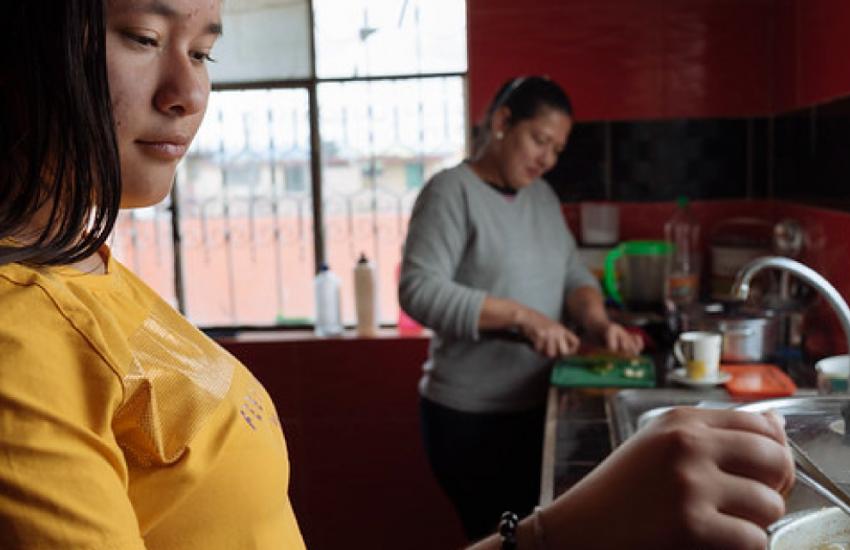Refugee and migrant women at the heart of post-Covid economic recovery
Gender equity promotes integration, encourages seed capital for entrepreneurship, and makes information visible for access to justice.
Outlined in the Joint Declaration of Santiago as a transversal and fundamental theme of the Quito Process, and proposed by its champion country, Chile, as an initial webinar to learn about the situation of girls, adolescents, and women in the region, Gender Equity became a subject axis for the first time in the Lima Chapter.
Its objective was to reflect on the phenomenon of human mobility of Venezuelans from a gender perspective, especially regarding the respect and guarantee of the human rights of women in all their diversity, who are exposed to more significant risks due to cultural patterns that are exacerbated during crises.
Based on this, a workshop was proposed to share good practices and lessons learned from the socio-economic integration of migrant and refugee women from Venezuela. Also, to make visible the greater risk of experiencing gender-based violence of women and young migrants and refugees from Venezuela and their protection and care challenges.
This also led to the search for a way to strengthen the technical capacities of civil servants related to migration policies and promote the gender approach in the design and execution of public policies on migration.
Among the conclusions reached by the workshop, attended by 208 people and led by the Ministry of Women and Gender Equity in Chile and the UN Women agency, are the following:
• Promote the economic integration of refugee and migrant women as an essential part of post-Covid-19 recovery.
• Manage processes that lead to increasing donations or investment from friendly countries in the context of humanitarian aid for this migrant and refugee population.
• Develop initiatives that make information on access to justice visible for migrant women victims of gender violence in all host countries.
• Seek mechanisms to achieve investment in seed capital for gender ventures and improve formal labor insertion processes.


